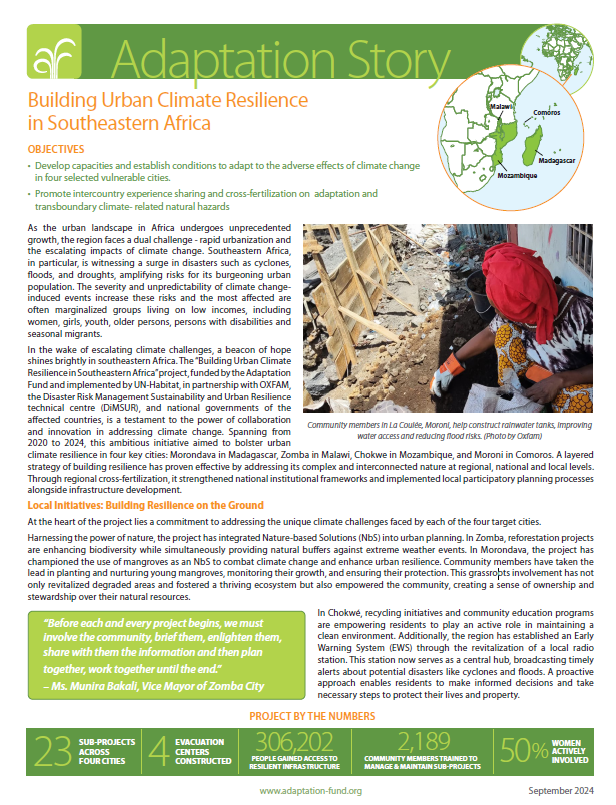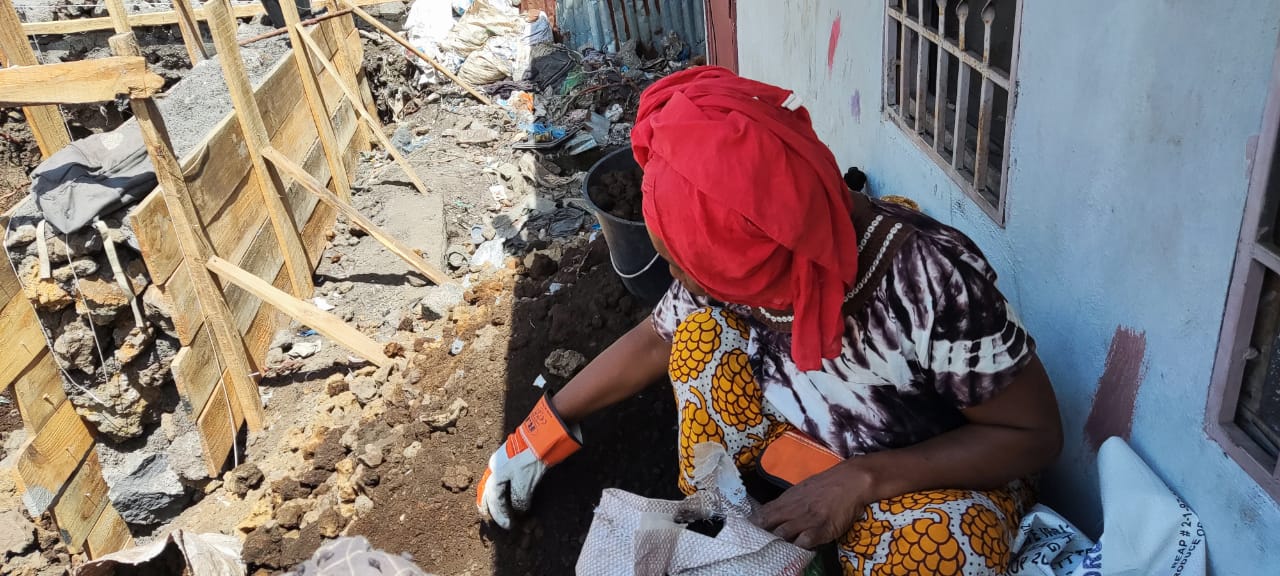Community members in La Coulée, Moroni, help construct rainwater tanks, improving water access and reducing flood risks. (Photo by Oxfam)
As the urban landscape in Africa undergoes unprecedented growth, the region faces a dual challenge – rapid urbanization and the escalating impacts of climate change. Southeastern Africa, in particular, is witnessing a surge in disasters such as cyclones, floods, and droughts, amplifying risks for its burgeoning urban population. The severity and unpredictability of climate change-induced events increase these risks and the most affected are often marginalized groups living on low incomes, including women, girls, youth, older persons, persons with disabilities and seasonal migrants.
 In the wake of escalating climate challenges, a beacon of hope shines brightly in southeastern Africa. The “Building Urban Climate Resilience in Southeastern Africa” project, funded by the Adaptation Fund and implemented by UN-Habitat, in partnership with OXFAM, the Disaster Risk Management Sustainability and Urban Resilience technical centre (DiMSUR), and national governments of the affected countries, is a testament to the power of collaboration and innovation in addressing climate change. Spanning from 2020 to 2024, this ambitious initiative aimed to bolster urban climate resilience in four key cities: Morondava in Madagascar, Zomba in Malawi, Chokwe in Mozambique, and Moroni in Comoros. A layered strategy of building resilience has proven effective by addressing its complex and interconnected nature at regional, national and local levels. Through regional cross-fertilization, it strengthened national institutional frameworks and implemented local participatory planning processes alongside infrastructure development.
In the wake of escalating climate challenges, a beacon of hope shines brightly in southeastern Africa. The “Building Urban Climate Resilience in Southeastern Africa” project, funded by the Adaptation Fund and implemented by UN-Habitat, in partnership with OXFAM, the Disaster Risk Management Sustainability and Urban Resilience technical centre (DiMSUR), and national governments of the affected countries, is a testament to the power of collaboration and innovation in addressing climate change. Spanning from 2020 to 2024, this ambitious initiative aimed to bolster urban climate resilience in four key cities: Morondava in Madagascar, Zomba in Malawi, Chokwe in Mozambique, and Moroni in Comoros. A layered strategy of building resilience has proven effective by addressing its complex and interconnected nature at regional, national and local levels. Through regional cross-fertilization, it strengthened national institutional frameworks and implemented local participatory planning processes alongside infrastructure development.
Read the full story here.
Attachments
| Attachment | Type | Size |
|---|---|---|
| AF Project Story: Building Urban Climate Resilience in Southeastern Africa | 8 MB |



